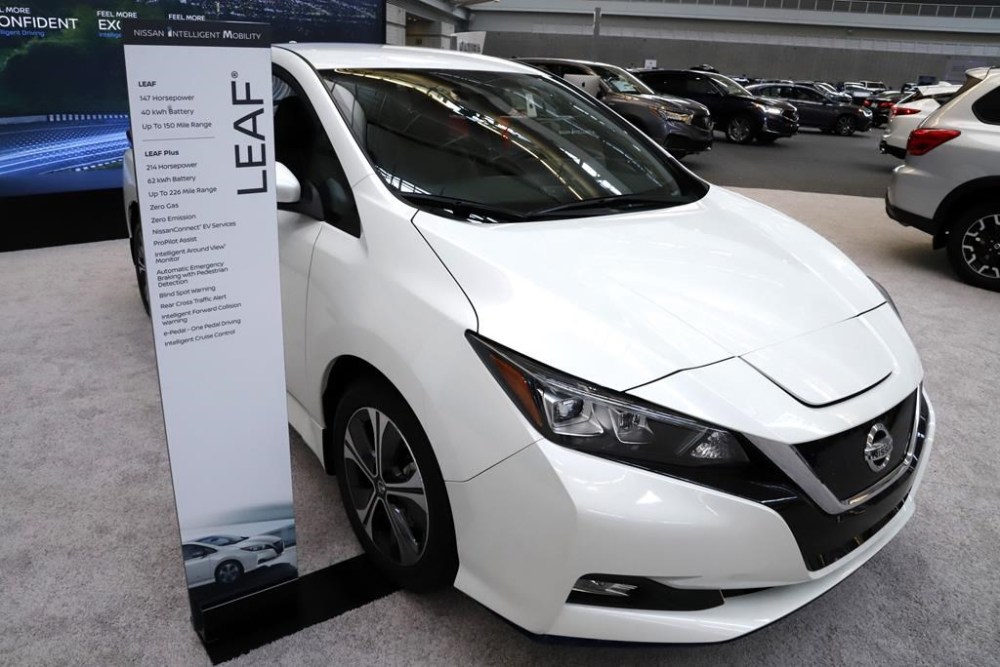Japan’s Nissan accelerates shift to electric vehicles
Advertisement
Read this article for free:
or
Already have an account? Log in here »
To continue reading, please subscribe:
Monthly Digital Subscription
$0 for the first 4 weeks*
- Enjoy unlimited reading on winnipegfreepress.com
- Read the E-Edition, our digital replica newspaper
- Access News Break, our award-winning app
- Play interactive puzzles
*No charge for 4 weeks then price increases to the regular rate of $19.00 plus GST every four weeks. Offer available to new and qualified returning subscribers only. Cancel any time.
Monthly Digital Subscription
$4.75/week*
- Enjoy unlimited reading on winnipegfreepress.com
- Read the E-Edition, our digital replica newspaper
- Access News Break, our award-winning app
- Play interactive puzzles
*Billed as $19 plus GST every four weeks. Cancel any time.
To continue reading, please subscribe:
Add Free Press access to your Brandon Sun subscription for only an additional
$1 for the first 4 weeks*
*Your next subscription payment will increase by $1.00 and you will be charged $16.99 plus GST for four weeks. After four weeks, your payment will increase to $23.99 plus GST every four weeks.
Read unlimited articles for free today:
or
Already have an account? Log in here »
Hey there, time traveller!
This article was published 27/02/2023 (990 days ago), so information in it may no longer be current.
TOKYO (AP) — Nissan is speeding up its shift toward electric vehicles, especially in Europe where emissions regulations are most stringent, the company said Monday.
Nissan Motor Co. said in a statement that it will make practically all its offerings in Europe electric or series-hybrids by fiscal 2026, at 98%. That’s up from the previous target of 75%. In Japan, the company aims to make 58% of its model offerings, up from an earlier target of 55%.
Hybrids have both a gasoline engine and electric motor, but a series hybrid uses the motor to power the vehicle’s wheels, or powertrain. The engine powers a generator for the motor. Parallel hybrids, like Toyota Motor Corp.’s Prius, switch back and forth between a gas engine and electric motor.

Nissan’s sales target in EVs and series hybrids remain unchanged for the U.S., at more than 40%. In China the target was cut to 35% from 40%. That includes only pure EVs, not hybrids.
Nissan’s target numbers do not include expected vehicle sales of Nissan’s alliance partners, such as Renault SA of France or Mitsubishi Motors Corp., a smaller Japanese carmaker.
The company was an early leader in electric vehicles, with its Leaf, which went on sale in 2010. It has been overtaken since then by newcomers like Tesla and Chinese automaker BYD.
Nissan officials say the company, based in Yokohama, have a wealth of knowledge about EV technology, especially about how consumers use the products, and what kind of wear and tear develop on the battery and other knowledge critical for the proliferation of green cars.
Nissan plans to roll out 19 electric vehicle models by 2030, up from an earlier 15, it said.
Earlier this month, Nissan said it will invest in up to a 15% stake in Ampere, Renault’s electric vehicle and software entity in Europe. Nissan and Renault have been working together on EV technology, with Nissan taking the lead in developing a next-generation battery.
___
Yuri Kageyama is on Twitter https://twitter.com/yurikageyama

